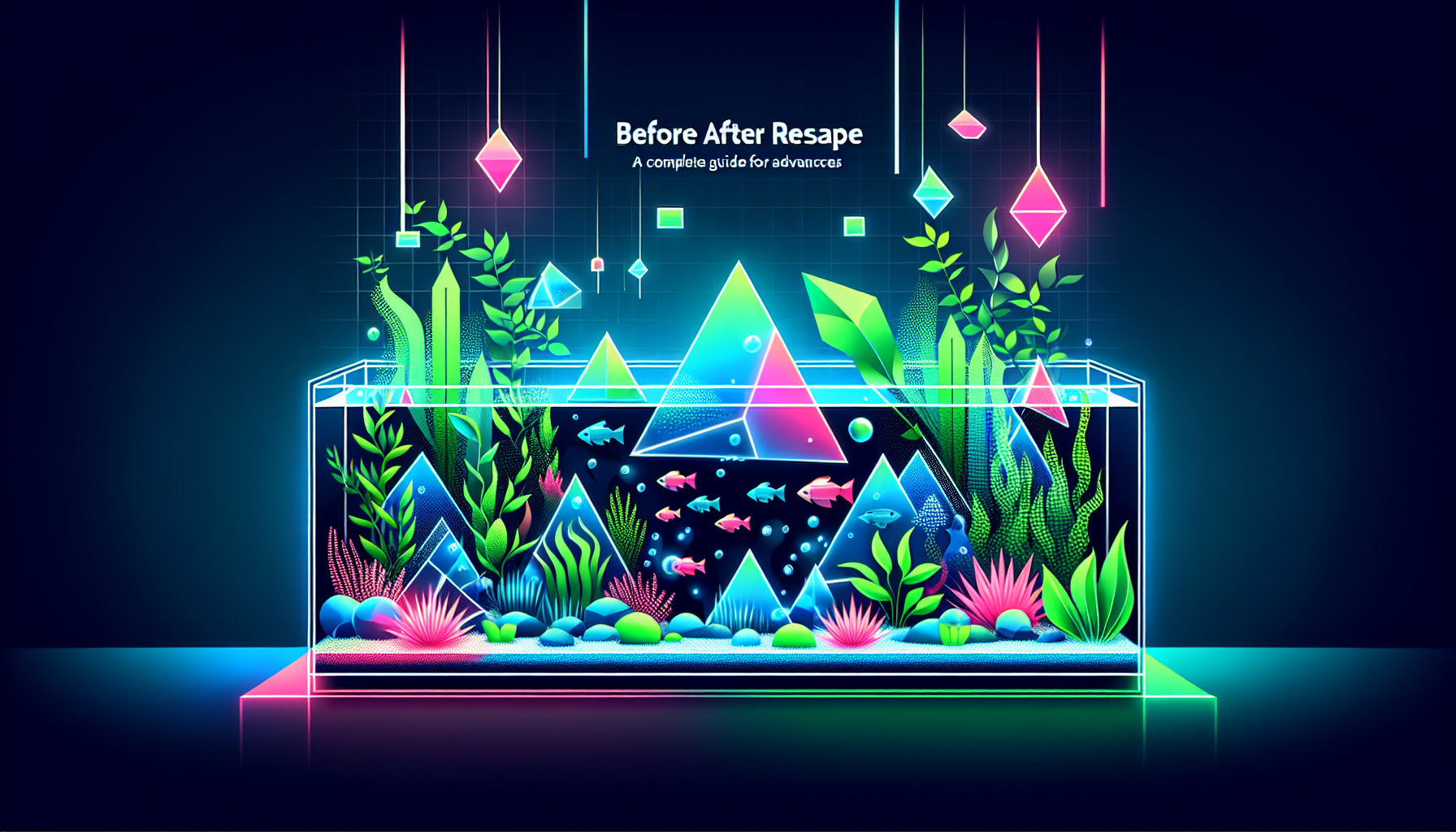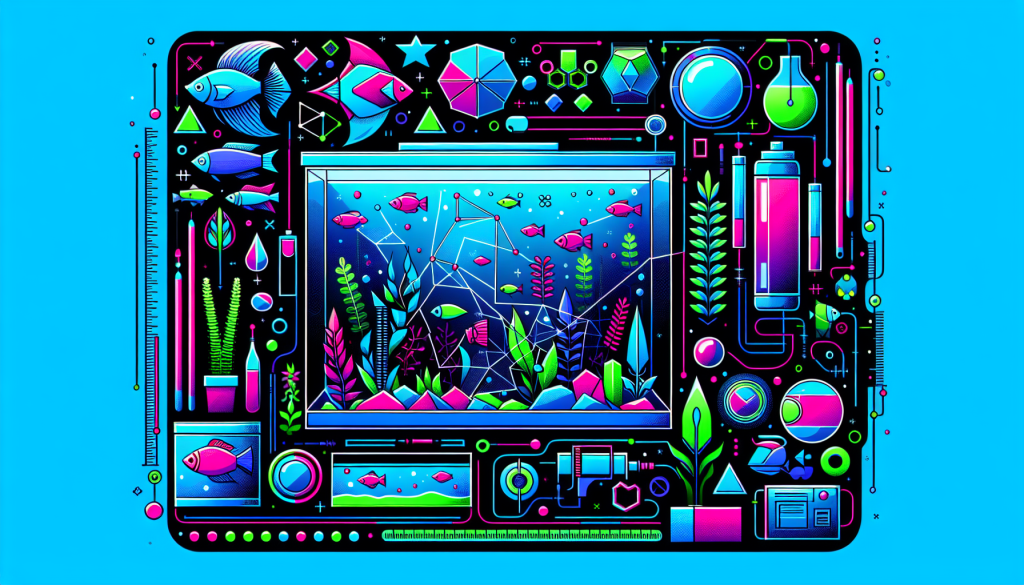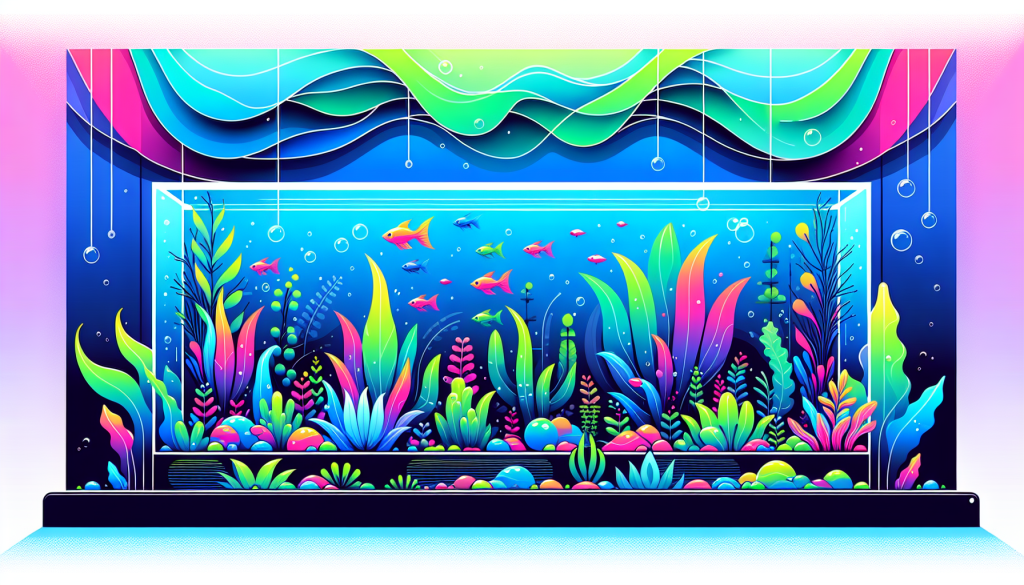Before After Rescape: Complete Guide for Advanceds
Are you ready to take your aquascaping skills to the next level? Rescaping is the art of transforming your aquarium into something even more breathtaking. In this comprehensive guide for advanced aquascapers, we’ll walk you through the full before and after rescape process—from planning and execution to sharing your results. Whether you’re chasing a masterful aquascape for competition or personal satisfaction, this guide will help you achieve spectacular outcomes.
Why Rescape? The Advanced Aquascaper’s Perspective
Even the most stunning aquascapes can grow stale or off-balance over time. Advanced aquascapers know that a periodic refresh, or complete rescape, can:
- Revitalize the tank’s aesthetic appeal
- Correct hardscape or plant arrangement issues noticed over months of growth
- Incorporate new techniques or styles (like Iwagumi, Dutch, Nature Aquarium, or Biotope layouts)
- Boost plant health and create new habitats for livestock
- Offer creative reinvigoration for seasoned aquascapers
Before committing to a rescape, gather inspiration by exploring inspiring aquascape ideas or reviewing your favorite competition galleries.
Planning the Rescape: Preparation for Success
Evaluate Your Current Aquascape
Take detailed before photos from multiple angles. Analyze:
- Growth patterns and plant health
- Hardscape stability and composition
- Algae or maintenance issues
- Fish/shrimp safety and comfort
Jot down what works and what you’d like to improve. Keep these notes as your roadmap.
Designing Your New Layout
Advanced aquascapers often sketch out several design options or use aquascaping software before touching the tank. Consider:
- Theme or Style: Will you switch layout styles or evolve your current look?
- Scale and Focal Points: Add or reposition large stones/driftwood for impact.
- Plant Choices: Integrate rare or demanding species such as Rotala, Bucephalandra, or carpet plants like Hemianthus callitrichoides.
For more design inspiration, check out our article on the golden ratio in aquascaping.
Gathering Tools & Materials
Ensure you have all the necessary aquascaping tools:
- Aquarium-safe buckets and towels
- Aquarium tweezers, scissors, and spatulas
- Spare filter media, CO2 components, or lighting if you plan upgrades
- Extra substrate and hardscape materials
Step-by-Step Rescape Process for Advanced Aquascapers
1. Prepare Your Livestock and Plants
Carefully move your fish and shrimp to a temporary holding tank with established filtration and temperature control. Remove any plants you plan to reuse and keep them moist.
2. Drain and Clean the Aquarium
Drain water down to substrate level, preserving some for use during refill. Remove debris and old substrate as needed. Clean aquarium glass and check for any equipment that may need maintenance or replacement.
3. Rebuild the Hardscape
This is where creativity shines. Advanced tips:
- Experiment with elevated slopes for perspective and depth
- Secure rocks and wood with aquarium-safe glue or zip ties for stability
- Test hardscape arrangements before finalizing—the “dry start” method can help
4. Planting with Precision
Use planting tweezers to place stems and epiphytes. Consider:
- Grouping by species and height for seamless flow
- Foreground, midground, and background layering for depth
- Immediate trimming for bushier growth if using fast-growers
For advanced planting strategies, browse our plant trimming techniques guide.
5. Refilling and Cycling
Slowly refill the tank to avoid disturbing your layout. Restart your filter and ensure your CO2, lighting, and dosing schedules are set for optimal plant recovery. Monitor ammonia and nitrite to keep water parameters stable during this dynamic period.
Showcasing Your Before and After: Documenting the Transformation
High-quality photos are vital. Use your initial before photos and replicate angles after your rescape matures (typically 2-6 weeks).
- Use macro and wide shots to capture plant health and overall layout changes
- Document challenges and solutions for your own growth (and to share with the aquascaping community!)
- Consider entering your before and after results into aquascaping contests or sharing in community groups
Troubleshooting Common Rescape Issues
Advanced rescapes aren’t without hurdles:
- Algae blooms: Ramp up maintenance, balance nutrients, and adjust lighting periods
- Plant melt: Keep stable parameters and prune melted tissue quickly
- Cloudy water: Run fine filter floss and increase water changes until clarity returns
If issues persist, explore our aquarium troubleshooting guide for solutions.
Final Thoughts: Enjoying Your New Aquascape
Rescaping at an advanced level is a rewarding journey—a chance to curate a living work of art, refine your craft, and inspire fellow aquascapers. Regularly observe changes and adjust care routines to help your new scape thrive. Remember: sharing your before and after stories can motivate others and contribute to our growing aquascaping community.
Ready for Your Next Challenge?
If you found this advanced guide on before and after rescapes helpful, don’t miss our expert aquascaping tips and subscribe to the Aquascaping Academy newsletter for new tutorials, plant guides, and inspiration delivered straight to your inbox.



